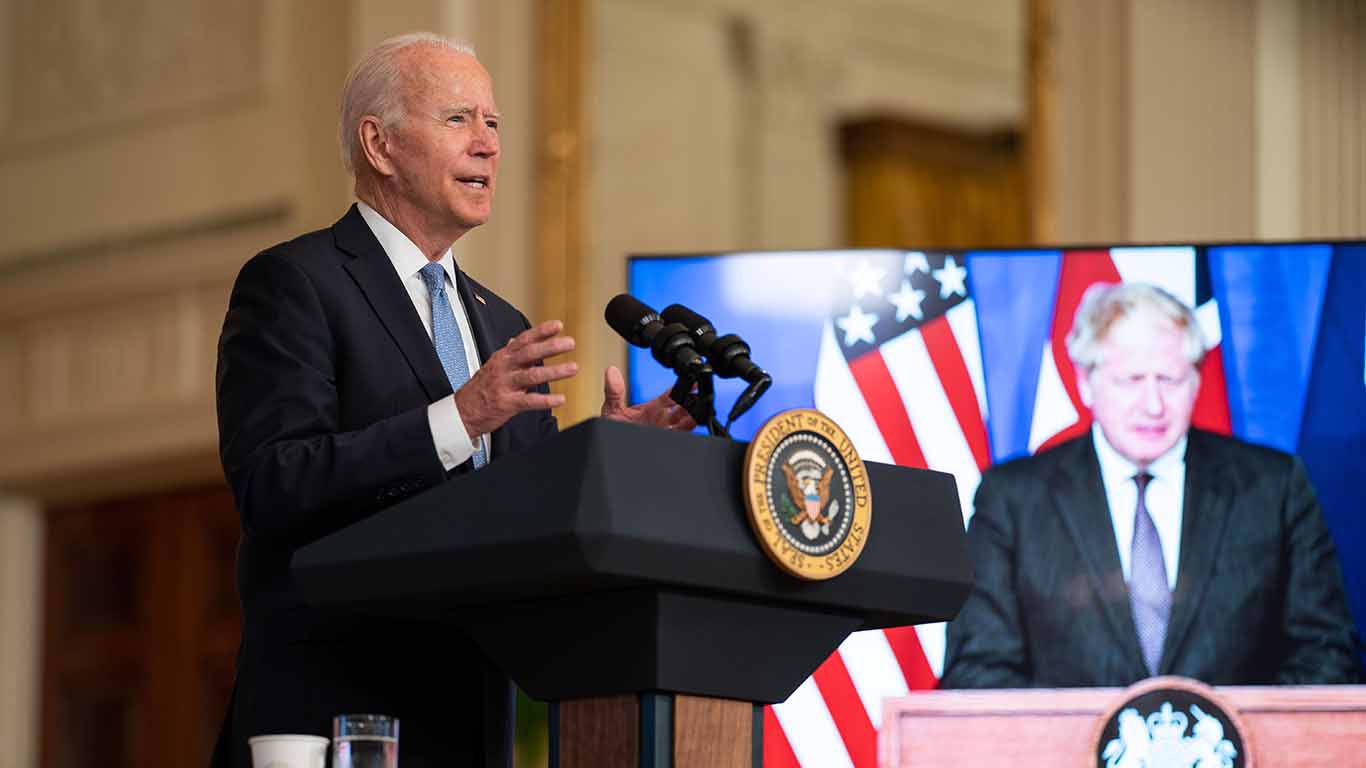IAN BURUMA

NEW YORK – Two days before the Normandy landings in June 1944, Charles de Gaulle demanded the right to govern France after it was liberated by the Allies. Franklin D. Roosevelt, who detested de Gaulle, had no intention of agreeing to this. Winston Churchill, who rather admired de Gaulle’s illusions of grandeur, sided with Roosevelt. He told the Free French leader that if he had to choose between de Gaulle and Roosevelt, he would always choose Roosevelt.
Churchill’s attitude was entirely understandable. Europe was occupied by Nazi Germany. The Free French were largely a symbolic force. And Britain was one of the three major Allied powers. Later, however, Britain’s choice to cling to the United States come what may (with one or two exceptions, including the Suez crisis in 1956 and the Balkan war in the 1990s) came with a heavy price.1
Flush with wartime victory, Britain turned down every opportunity to shape European institutions in the 1950s, and when Prime Minister Harold Macmillan concluded in the early 1960s that Britain could remain a serious country only within the European Economic Community, de Gaulle stood in his way. British membership of the EEC was vetoed by the general in 1963, and again in 1967.
De Gaulle hadn’t forgotten Churchill’s words in 1944. He saw Britain as a Trojan Horse for American domination of Europe. France, in his view, was Europe’s natural leader. And, because Germany had no desire to assert leadership, and other Europeans had had quite enough of German power, this arrangement was widely accepted.
Britain finally joined the EEC in 1973, but even so, British prime ministers, except for Edward Heath in the 1970s, hung on to their so-called (especially by the British) “special relationship” with the US. This was largely a matter of shared nuclear secrets, intelligence, and military cooperation. Britain hoped that the special relationship would allow it to remain a formidable global player, even long after its empire was lost.
Now, once again, Britain has opted to side with the US, this time in a new defense pact with Australia to counter China. AUKUS is its unlovely name. A long-standing agreement with France to supply diesel-powered submarines to Australia was broken in favor of Anglo-American nuclear-powered boats. France is understandably furious. The three AUKUS countries didn’t even bother to notify the French of their impending deal. France recalled its ambassadors from Canberra and Washington, but not from London; Britain was not deemed to be important enough.
There may be good reasons why Australia decided American submarines would be more suitable as a defense against China. It might also be argued that it makes sense to strengthen US alliances in the Indo-Pacific region, not just with Australia, but also Japan and India. Quite what British interests in the region are, apart from puffing up a self-image of “global Britain” after Brexit, is less clear. France, with 1.5 million people, 8,000 troops, and island territories in the Indian and Pacific Oceans, has more at stake there than Britain does.
But there is more to AUKUS than submarine deals, lucrative though they are. US President Joe Biden has decided to confront China’s expanding power in East Asia with a show of military force. He has often expressed his wish that American allies would join him in this effort, even as Japanese and Europeans worry about damaging trade interests in China and being sucked into a potential war. But by undercutting France, the US, with the connivance of Britain, has widened a historical rift among European allies. It is as though de Gaulle’s suspicion of les Anglo-Saxons in 1944 has been proven right.
There is of course another way of looking at this. Wartime nostalgia plays an important part in Britain’s instinctive fondness for the special relationship. Like former Prime Minister Tony Blair in the run-up to the invasion of Iraq in 2003, some British politicians might believe that the United Kingdom is the only European country with serious armed forces and the political will to use them. Prime Minister Boris Johnson, like Blair before him, seems to fancy himself a modern-day Churchill.
Unfortunately (or not), Britain’s military power is insignificant compared to what Churchill could command in 1944. Wartime nostalgia has drawn Britain into several foolish American wars, which other European countries were wise to avoid. The question is whether provoking China’s wrath by supporting Biden’s saber-rattling is justified nonetheless, even if it doesn’t involve direct British interests. Is the alternative of backing off and doing business as usual with China a form of cowardly appeasement? Or might there be other options?
Fear of repeating Neville Chamberlain’s appeasement in 1938 is one reason why the US and Britain have gotten themselves entangled in unnecessary wars in the decades after World War II. This is why French leaders have called for greater “strategic autonomy” for the European Union. Europe should beef up its own military force and wean itself from dependence on the US. The EU High Representative for Foreign Affairs and Security Policy Josep Borrell announced that Europe, too, would help to limit China’s power. The bloc would seek a trade deal with Taiwan while still engaging with China. Even the pro-European, left-leaning newspaper Le Monde called this “deficient in backbone.”
As long as the EU has no common foreign policy and sufficient armed forces of its own, talk of strategic autonomy is just that. Only the full cooperation of Britain, and far greater military participation by Germany, might one day give Europe some chance of autonomy. But the combination of Germany’s historical baggage and Britain’s fixation on its special relationship stands in the way.
As a result, the fate of the Indo-Pacific region, and perhaps many places beyond, will remain in the hands of the increasingly aggressive authoritarians in Beijing and whoever happens to be sitting in the White House. Either way, neither Britain nor Australia, much less France and the EU, will have much to say in the matter.
No comments:
Post a Comment